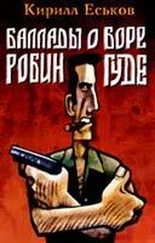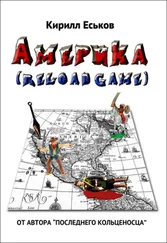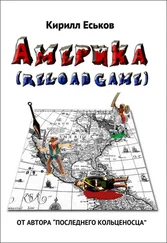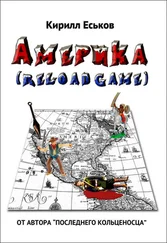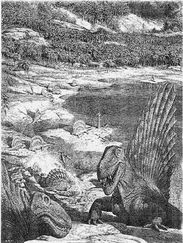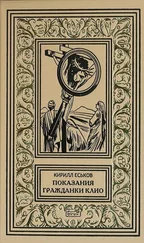Кирилл Еськов - The Last Ringbearer
Здесь есть возможность читать онлайн «Кирилл Еськов - The Last Ringbearer» весь текст электронной книги совершенно бесплатно (целиком полную версию без сокращений). В некоторых случаях можно слушать аудио, скачать через торрент в формате fb2 и присутствует краткое содержание. Жанр: Фэнтези, на английском языке. Описание произведения, (предисловие) а так же отзывы посетителей доступны на портале библиотеки ЛибКат.
- Название:The Last Ringbearer
- Автор:
- Жанр:
- Год:неизвестен
- ISBN:нет данных
- Рейтинг книги:4 / 5. Голосов: 1
-
Избранное:Добавить в избранное
- Отзывы:
-
Ваша оценка:
- 80
- 1
- 2
- 3
- 4
- 5
The Last Ringbearer: краткое содержание, описание и аннотация
Предлагаем к чтению аннотацию, описание, краткое содержание или предисловие (зависит от того, что написал сам автор книги «The Last Ringbearer»). Если вы не нашли необходимую информацию о книге — напишите в комментариях, мы постараемся отыскать её.
© 2010 Yisroel Markov (English translation),
For non-commercial distribution only
The Last Ringbearer — читать онлайн бесплатно полную книгу (весь текст) целиком
Ниже представлен текст книги, разбитый по страницам. Система сохранения места последней прочитанной страницы, позволяет с удобством читать онлайн бесплатно книгу «The Last Ringbearer», без необходимости каждый раз заново искать на чём Вы остановились. Поставьте закладку, и сможете в любой момент перейти на страницу, на которой закончили чтение.
Интервал:
Закладка:
Chapter 56
They set up a defense perimeter in a worst possible location – an overgrown dale with zero visibility – because moving elsewhere was even more dangerous. There was not even a suggestion to light a fire, they were afraid to even talk, much less expose themselves to light. Even the wounded had to be tended to in pitch-black darkness. Gripping their bows and swords, the lord’s men stared and listened to the moonless night, firing at every rustle and every suggestion of movement in the fog rising from rotting leaves. It ended with someone losing his cool at about two in the morning: the idiot yelled “ Woses !” and sank an arrow into his neighbor, who had just gotten up to stretch his numb legs; then he ran inside the perimeter, crashing through the bushes. The worst thing that can happen in a nightly battle happened then: the perimeter fell apart and everyone ran around in the dark shooting at everybody else, every man for himself.
This was no accident, though: the ‘someone’ who caused the free-for-all with a shot at his comrade was none other than Runcorn. The forester had appropriated the cloak of one of the dead (who were left unguarded), blended in with the lord’s men as they were setting up their defense, and waited. He certainly had a hundred opportunities to put an arrow into the landlord and vanish into darkness in the ensuing chaos – but in his judgment the man did not deserve such an easy death, so he had other plans.
Only at dawn did the outcome of the fight become clear to the hapless hunters – they lost two more men and the landlord himself vanished without a trace. Supposing that he got lost in the night scuffle and secreted himself in the dark (which is the correct solution: only a total idiot would run headlong through the night forest; a thinking person would hide quietly under a bush until someone trips over him), the fighters started combing the forest, calling on their lord. They found him a couple of miles away, guided by the cackling of crows. The young lord was tied to a tree, his genitals sticking out of his mouth – “choked on his balls,” as the serfs later said in relish.
The entire local population joined in the hunt for the evildoer with gusto, but they might as well have been trying to capture an echo. The former royal forester’s career had only one possible direction now – a life of robbery and death at the hands of the law. Wounded in a fight with the sheriff of Harlond’s men, broken on the rack, Runcorn was about to grace the local gallows when Baron Grager rode into town looking to recruit reinforcements for the decimated Ithilien regiment. “I’ll take this one,” said the baron in approximately the tone of a housewife picking out a cut of ham at the butcher’s (“…and slice it thin!”); the sheriff could only grit his teeth.
The war beyond Osgiliath was going so-so; the Ithilien regiment fought noticeably better than any other unit and, as is customary, was the last one to be replenished. In general reinforcements were hard to come by (the folks at Minas Tirith who screamed the loudest about the ‘need to free Middle Earth from the eastern darkness once and for all’ have all suddenly developed pressing business on this side of the Anduin, whereas the plain folk never cared for the War of the Ring to begin with), so the special dispensation that Faramir had bargained for – ‘even right off the gallows’ – had to be used quite frequently. Grager himself was walking in the gallows’ shadow, but the reach of the courts of Gondor was too short to grab a front-line officer in wartime.
The regiment’s physician had to expend a mountain of effort to turn the bag of bones Grager had extracted from the Harlond jail into a semblance of a man, but the famous robber was worth it. Runcorn could not shoot a bow like he used to (his mangled shoulder joint had forever lost flexibility), but he remained an excellent scout, and his experience with traps and other forest warfare tricks was truly priceless. He finished the war with the rank of sergeant, then participated under his lieutenant’s command in freeing and elevating Faramir to the throne of Ithilien, and was just about to start building himself a home – somewhere far from people, in the Otter Creek dell, say – when His Highness the Prince of Ithilien invited him over. Would he kindly agree to accompany two of his guests north, to Mirkwood?
“I’m no longer in service, my Captain, and charity is not my business.” “That’s exactly what I need – a man not in my service. Nor is this charity, they’re prepared to pay well. Name your price, Sergeant.” “Forty silver marks,” Runcorn said out of the blue, just to get them off his back. But the wiry hook-nosed Orc (who seemed to be the leader) only nodded: “Done,” and undid the money bag with Elvish embroidery. When a handful of assorted gold coins appeared on the table (Haladdin had long wondered where Eloar might have gotten the Vendotenian nyanmas or the square chengas from the Noon Islands), the ranger could no longer back out gracefully.
Runcorn took responsibility for all preparations for the trip to Dol Guldur, so Haladdin and Tzerlag enjoyed a total lack thereof. The scout tried the leather ichigas bought for them with obvious anxiety (the Orocuen did not trust any footwear without a hard sole), but he really liked the ponyagas the locals used instead of rucksacks. These rigid frames of two bird-cherry arcs conjoined at a straight angle (the wood is bent right after cutting and becomes bone-hard when it dries) allow one to carry a lumpy hundred-pound load without worrying about fitting it to one’s back.
To the doctor’s mild surprise the Orocuen decided to move from Emyn Arnen’s guest quarters where the prince had put them to the barrack of Faramir’s personal guard for the duration. “I’m a simple man, sir, I’m like a fly in honey amidst all this luxury. It’s bad for the fly and bad for the honey.” He showed up at breakfast the next day sporting a large shiner but quite pleased with himself. It turned out that the Ithilienians, who had heard tell of the sergeant’s exploits on the night of the prince’s escape, prodded him into challenging the two best hand-to-hand fighters they had. Tzerlag won one fight and lost (or, perhaps, had the smarts to lose) the other to complete satisfaction of all involved. Now even the Orocuen’s dislike for beer, uncovered during long evening jaw sessions, met with the rangers’ understanding: a competent man within his rights. What’s the drink you got over there – kumiss ? Sorry, man, no deliveries this year… One day Haladdin visited the barrack to talk to his companion and noted how a lively conversation in Common died down the moment he showed up and an awkward silence reigned – the learned doctor was nothing but a hindrance to farmers’ sons finally free of the necessity to shoot each other, a boss.
Since they did not know who was in charge in the Brown Lands on the left bank of the Anduin, they chose a water route. They sailed all the way to the Falls of Rauros (about two- thirds of the trip), helped by the strong even south wind that blows throughout the valley of the Great River at that time of year. From there they had to use light dugouts. Haladdin and Tzerlag spent that part of the journey as cargo: “You don’t know the River, so the best you can do for the company is keep your asses glued to the bottom of the boat and make no sudden movements.” On June 2nd the expedition reached the North Undeep, a twist in the river right before the mouth of Limlight river originating from Fangorn. The Enchanted Forests began here – Lórien on the right bank, Mirkwood on the left; that left less than sixty miles to Dol Guldur as the crow flies. Faramir’s men remained behind to guard the boats (on the Rohan bank, just in case), while the three of them reached the jagged black-green wall of Mirkwood firs the next day.
Читать дальшеИнтервал:
Закладка:
Похожие книги на «The Last Ringbearer»
Представляем Вашему вниманию похожие книги на «The Last Ringbearer» списком для выбора. Мы отобрали схожую по названию и смыслу литературу в надежде предоставить читателям больше вариантов отыскать новые, интересные, ещё непрочитанные произведения.
Обсуждение, отзывы о книге «The Last Ringbearer» и просто собственные мнения читателей. Оставьте ваши комментарии, напишите, что Вы думаете о произведении, его смысле или главных героях. Укажите что конкретно понравилось, а что нет, и почему Вы так считаете.

